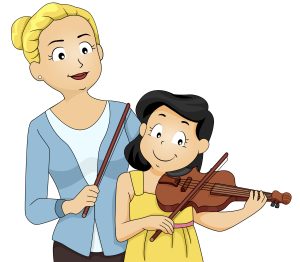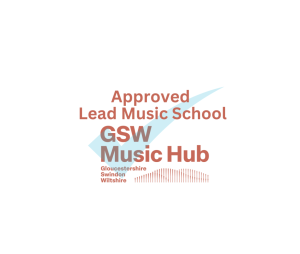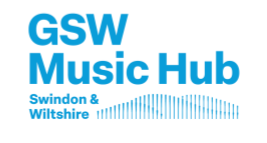Wiltshire Schools’ eNewsletter – May 2025
Saturday May 10th 2025

Newsletters Showing Publication of Updates
Wiltshire school Newsletter May 2025
Updates for School Music Leads
New live (up-to-date) Bulletin Board on the website
A new up-to-date Bulletin Board is now on the website. We are encouraging schools to view this on a regular basis to be kept informed of information relevant to your school. You will find this in the“What’s on offer to Schools” in the Wiltshire Icon.
Changes to the Tuition Subsidies for Academic Year 2025-26

We are not getting any announcements for funding allocations from the DfE until July which is not very helpful for setting out budgets. This, coupled with the latest data we have the for region and extracts from the new National Plan for Music Education (NPME), we are making the following changes:
“While swaths of this region are generally considered relatively affluent, it is important to acknowledge the presence of pockets of deprivation. These cab be found in certain urban areas and, to some extent, within more isolated rural communities. Data from sources like the Indices Multiple Deprivation (IMD) highlights that while the region may not be as uniformly deprived as some areas, disparities exit.”
As a brief insight: Swindon saw an increase in open EHCPs from 2022 to 2573 in 2023, while in Gloucestershire, only 35% of EHCPs were provided within the statutory 20-week timeframe in 2023. This growing trend is further underscored by Wiltshire Council’s ongoing SEND Transformation Programme, which includes expanding special school places and resource base.
Important context when looking to deliver for young people in school settings is the well documented rising number of children with Educational, Health and Care Plans (EHCPs). This indicates an increase prevalence, or understanding, of special educational needs (SEN) and disabilities among the young g population, placing a greater demand on support services and SEN educational provision to be genuinely fit for purpose in supporting all young people reach reach their potential.
Pressure on the Subsidies budget is increasing. This coupled with the lack of announcement of the level of funding from DfE has made us re-look at the support package:
- The Bursary’s are aimed and those facing financial barriers as the overarching criteria
- Du to there being an increasing demand and budget limit, the support will continue to support the flowing categories:
- Those C&YP in receipt of Pupils Premium
- Those categorised by the Local Authority as SEND with financial hardship
- Look After Children (50% from the Hub and 50% from the Looked After Team in the LA)
- Lessons attracting Bursaries are:
- 15-minute individual lessons
- 20-minute shared lessons
- 30-minute shared lessons
- Associate tutors will demand their own fees, but recommended range from the Hub is £30.40 – £40 per hour.
- The Bursary allocated is based on 70% of an hourly cost of £32 p/h on the 15-minute lessons, capped at £5.60.
- 15-minute individual lesson (Example: £32 p/h divided by 4 = 15 minutes – cost £8. Bursary of £5.60 leave £2.40 per lesson to be match funding from other sources.
- If the Associate chooses to charge more than £32 p/h then the Bursary still stays at £5.60 and the match funding element will increase (Example: £40 p/h divided by 4 = 15-minutes £10 leaves £4.40 per lesson to be match funded from other sources.
- 20-minute shared and 30-minute shared lessons will still only attract £5.60 Bursary as the contribution to the lesson.
By this , we will be in a much better place to support further increase in requests for financial support
Schools’ Singing Festivals

‘We are thrilled to invite Wiltshire schools to participate in the renowned Voice Festivals 2025/26, proudly presented by Swindon Music Service in collaboration with Swindon and Wiltshire Schools.
A 30-Year Tradition of Musical Excellence
For three decades, our Swindon Voice Festivals have provided children across the region with an unforgettable performance experience. Each year, approximately 1,000 young voices take the stage across four performances per festival, creating memories that last a lifetime! And we are now opening this up to Wiltshire schools.’ For more information, contact Lynn at lhawkins@smscio.co.uk
Lead Schools

The Lead schools for Gloucestershire, Swindon & Wiltshire are:
Gloucestershire:
The Crypt (Grammar School); Powells Primary School
Swindon:
Dorcan Academy (Secondary School); Lethbridge Primary School
Wiltshire:
Royal Wootton Basset Academy (Secondary School); Grove Primary School; Special Education: Silverwood School (serving the entire GSW region
Their role as partners Leads Schools in the Music Hub is to:
Enhancing Music Education Through Specialised Leadership
Each Lead School will contribute to transforming music education by:
- Providing specialist Continuing Professional Development (CPD) across key focus areas including Composition/Improvisation, Assessment, Notation, Inclusive Music Making, Singing in Parts, and Extra-Curricular music activities/events
- Conducting support visits to schools throughout the region
- Championing music education at all levels
- Identifying and addressing local needs
- Providing dynamic leadership and strategic direction to improve music-making quality across GSW Music Hub schools
- Embedding strong practice and supporting effective professional development for teachers
Each school will also specialise in supporting in the following areas:
Composition and Improvisation – Sarah Williams Powells (Glos Pri), Liz Hodgson RWBA (Wilts Sec)
Assessment – Beth Durston Dorcan (Swin Sec)
Notation – Beth Durston (Swin Sec), Jessica Fish Grove (wilts Pri)
Inclusive Music Making – Nick Fletcher Silverwood (Wilts Spec 3-19) Lisa Mayes Lethbridge (Swin Pri)
Singing in Parts – Julian Whittaker The Crypt (Glos Sec), Nick Fletcher (Wilts Spec 3-19)
Extra-Curricular Music activities and events – Jessica Fish (Wilts Pri) Liz Hodgson (Wilts Sec)
Whole Class Ensemble Tuition (WCET) [Wiltshire call this First Access]
This programme is offered predominantly to KS 2 schools when attracting Hub Funding. The reason in any change is due to the New national Plan for Music Education (see extract)
“It is our ambition, captured in the national curriculum, that every child should have the opportunity to learn a musical instrument. Under this refreshed plan, Music Hubs will still be expected to provide an offer of whole-class and/or group instrumental lessons to their local schools, so that every child can learn an instrument in class time. Such provision should be aimed at primary schools predominantly (and we would expect it will be delivered mainly at key stage 2)…we expect schools to pay for WCET/large/small group and instrument hire, aspart of their delivering the music curriculum…the programme must be designed as a high-quality educational offer, with consideration given to the curriculum underpinning of the programme, and ideally should be for a minimum of one year. It should involve all children in the class…be designed by Hubs in partnership with their local schools, to fit coherently within their curriculum offer…”
The Hub will continue to subsidise WCET (First Access) at Key Stage 2 and MUST be delivered by one of our specialist Associate tutors, which is inline with the new NPME. We will continue to support other Key stages with instrument hire, and resources. If schools wish to deliver the program themselves at any key stage with their own teaching staff, we can support you with resources and CPD.

The new GSW website for Swindon & Wiltshire is now live with content being regularly updated https://gswmusichubswindwilts.org.uk
As a Wiltshire school, please visit the homepage and click on ‘Wiltshire’s Music Support’ at the following link:
https://gswmusichubswindwilts.org.uk/home/wiltshire/
Under the ‘What’s on offer for Wiltshire schools’ tab, you can find information and access to the following:
· Tabs to apply for instrumental/vocal tuition bursaries (previously subsidies), WCET (First Access), instrument hire, key dates for applications. These include links to the one-stop portal.
· Information on using Associate Tutors.
· Events and training opportunities.
· Music clusters.
· Lead schools.
· The safeguarding policy for schools using Associates.
· A form to celebrate and share your musical activities within the community.
At the top of the ‘What’s on offer for Wiltshire schools’ page, there is a new tab titled ‘School Bulletin Board’. Please review this page regularly to stay informed about the latest updates.
This section has detailed information on how to apply for instrumental/vocal tuition bursaries (subsidies), WCET (First Access), instrument hire, and important key dates. It is important to read these updates, especially considering some changes for 2025/26. Contact details if you have any questions related to these applications are also provided on this page:
https://gswmusichubswindwilts.org.uk/home/wiltshire/schools-bulletin-board/.
The Directory of Associate Tutors can be found under the ‘Wiltshire’s Music Support’ page here:
https://directory.gswmusichubswindwilts.org.uk/.
Lastly, the Wiltshire School May 2025 Newsletter is available at the following link:
https://gswmusichubswindwilts.org.uk/news/wiltshire-school-newsletter-may-2025/.
